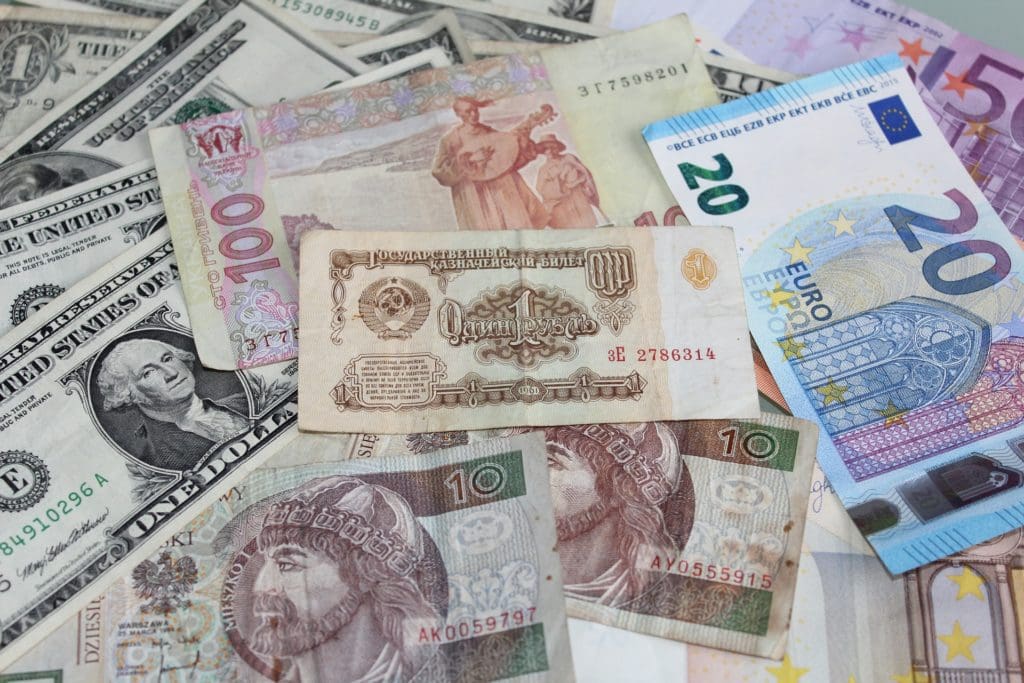 The U.S. dollar is the most widely used currency in the world. Many countries accept it, in addition to their own national currency. A few others, such as Ecuador and the British Virgin Islands, have even adopted the U.S. dollar as their own, but travel to most countries requires exchanging U.S. dollars into the local currency. You’ll need cash for taxis, tipping, local guides and smaller merchants. Here are some best practices for money exchange when traveling abroad.
The U.S. dollar is the most widely used currency in the world. Many countries accept it, in addition to their own national currency. A few others, such as Ecuador and the British Virgin Islands, have even adopted the U.S. dollar as their own, but travel to most countries requires exchanging U.S. dollars into the local currency. You’ll need cash for taxis, tipping, local guides and smaller merchants. Here are some best practices for money exchange when traveling abroad.
Do Use ATMs for Money Exchange
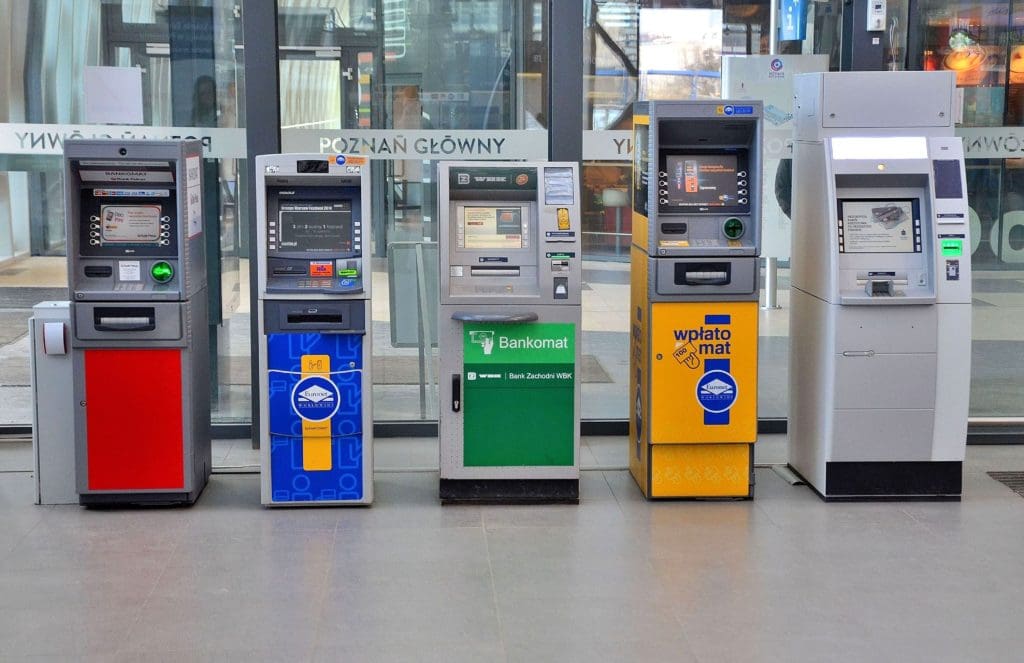 ATMs are the most economical money exchange. You’ll need to know your pin number and expect to only have access to your checking account, not savings. Your own bank may have fees for the transaction, but they rarely exceed 3%. Travel Maestro tip: Verify your daily withdrawal limit with your bank before you go.
ATMs are the most economical money exchange. You’ll need to know your pin number and expect to only have access to your checking account, not savings. Your own bank may have fees for the transaction, but they rarely exceed 3%. Travel Maestro tip: Verify your daily withdrawal limit with your bank before you go.
Don’t Use Exchange Bureaus
The ubiquitous exchange bureaus charge a flat fee and offer less than optimal money exchange rates, so you end up paying as much as 15% for the transaction. Exchanging in foreign banks is not much better, averaging about 8% cost. Travel Maestro tip: If you can’t use an ATM, the best alternative is usually a postal bank or possibly your hotel.
Do Monitor Currency Exchange Rates
Exchange rates vary daily and by exchange facility, so know what rate you are paying. As you make purchases in the local currency, be able to do a rough exchange calculation in your head or use an offline smartphone converter app so you can approximate your cost. Travel Maestro tip: Study the currency and coins so you can confidently pay and count your change. If you don’t know the denominations, you’re an easy target for getting short changed.
Do Use Credit Cards for Large Purchases
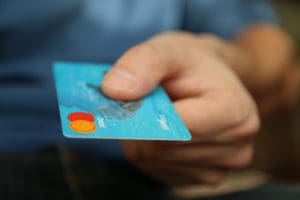 Although you will need cash for smaller spending, using credit cards for bigger purchases protects you from having to carry large amounts of cash. Visa and MasterCard are the most widely accepted cards overseas. American Express is recognized in some places, but Discover is virtually unknown outside the U.S. Know your card’s fees for foreign transactions. Travel Maestro tip: If you don’t like the fees on your existing card, consider getting an additional car just for international travel. Capital One is my card of choice because it has no fees on international purchases.
Although you will need cash for smaller spending, using credit cards for bigger purchases protects you from having to carry large amounts of cash. Visa and MasterCard are the most widely accepted cards overseas. American Express is recognized in some places, but Discover is virtually unknown outside the U.S. Know your card’s fees for foreign transactions. Travel Maestro tip: If you don’t like the fees on your existing card, consider getting an additional car just for international travel. Capital One is my card of choice because it has no fees on international purchases.
Don’t Take Cash Advances on Credit Cards
At ATMs, withdraw cash from your checking account using your debit card. If you use a credit account, (sometimes very high) interest will start accumulating immediately, without the grace period that credit card purchases enjoy – on top of the transaction fees.
Don’t Make Purchases With Debit Cards
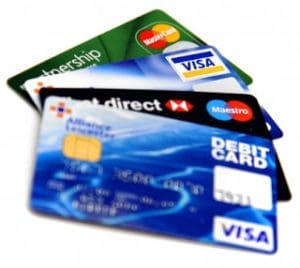 Using a debit card instantaneously decrements your checking account. If the transaction is canceled or there is some problem, it can take days for the money to get back to your bank account. Travel Maestro tip: Because of the instant funds transfer, unauthorized access can wipe out your account, leaving you cash strapped while the theft is investigated.
Using a debit card instantaneously decrements your checking account. If the transaction is canceled or there is some problem, it can take days for the money to get back to your bank account. Travel Maestro tip: Because of the instant funds transfer, unauthorized access can wipe out your account, leaving you cash strapped while the theft is investigated.
Don’t Use Dynamic Conversion
Many establishments will offer you the option of charging your credit card in U.S. dollars. Don’t do it. Always have charges go through in the local currency and let your bank make the conversion. If you charge in U.S. dollars or pay in U.S. currency, the exchange rate is set by the merchant and can be exorbitant. Travel Maestro tip: Spend or donate all of your foreign coins before you go home. You can re-exchange foreign currency, but not coins.
Don’t Bother With Traveler’s Checks
Traveler’s checks are dinosaurs. Use ATMs. While they may be refundable if lost, there are fees to purchase and more fees to cash them. Most small merchants don’t accept them or don’t know what they are, and you’ll spend an inordinate amount of time exchanging them in banks. Travel Maestro tip: Same goes for getting foreign currency stateside before travel – it’s not worth the time and fees. Just use ATMs in the airport upon arrival.
Do Carry Emergency Cash
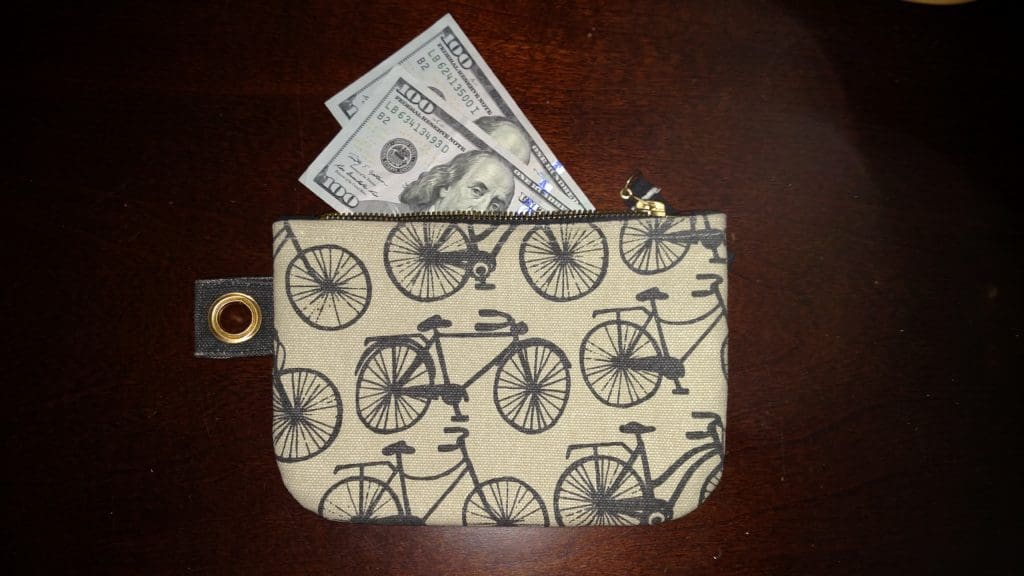 Tuck away one or two crisp $100 bills in a safe place, just in case. You’ll be glad to have it if the ATM is down, the banks strike, or if you have the misfortune to be the victim of a pickpocket. Travel Maestro tip: If there’s no emergency, you have a little extra mad money for a special experience at the end of your trip!
Tuck away one or two crisp $100 bills in a safe place, just in case. You’ll be glad to have it if the ATM is down, the banks strike, or if you have the misfortune to be the victim of a pickpocket. Travel Maestro tip: If there’s no emergency, you have a little extra mad money for a special experience at the end of your trip!
For help planning your trip abroad, be sure to contact the expert travel planners at Covington Travel.

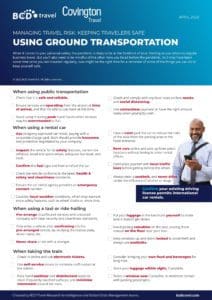
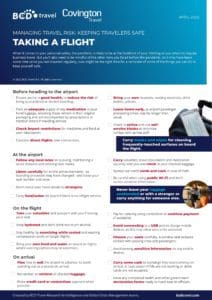
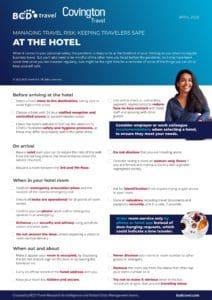
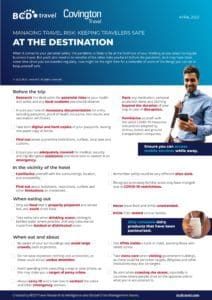
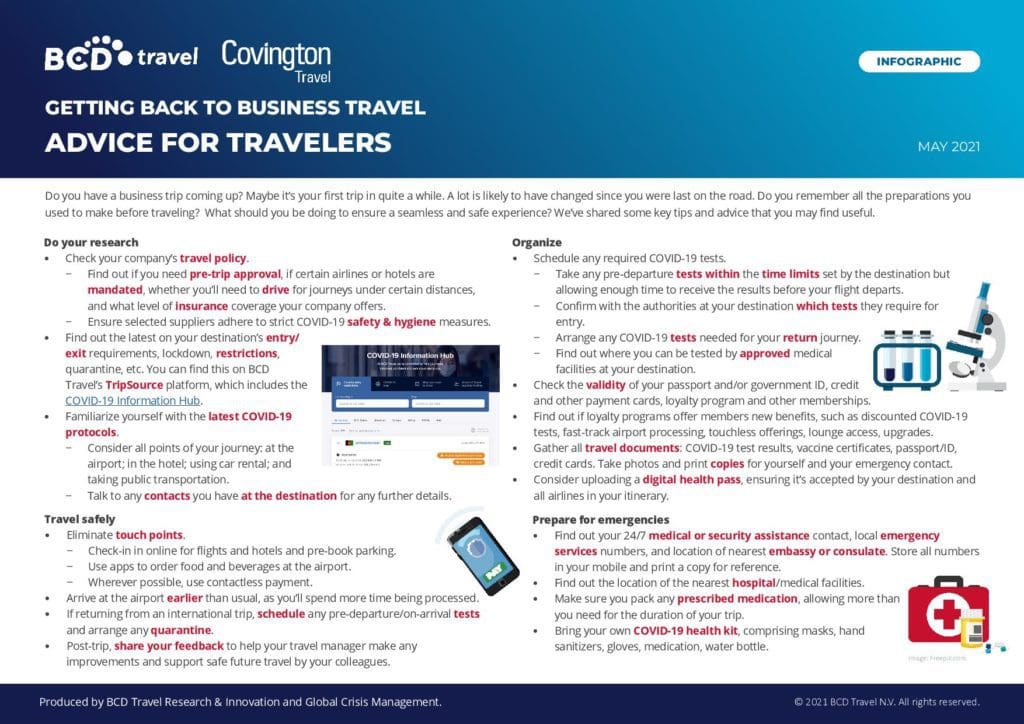
Leave a Reply